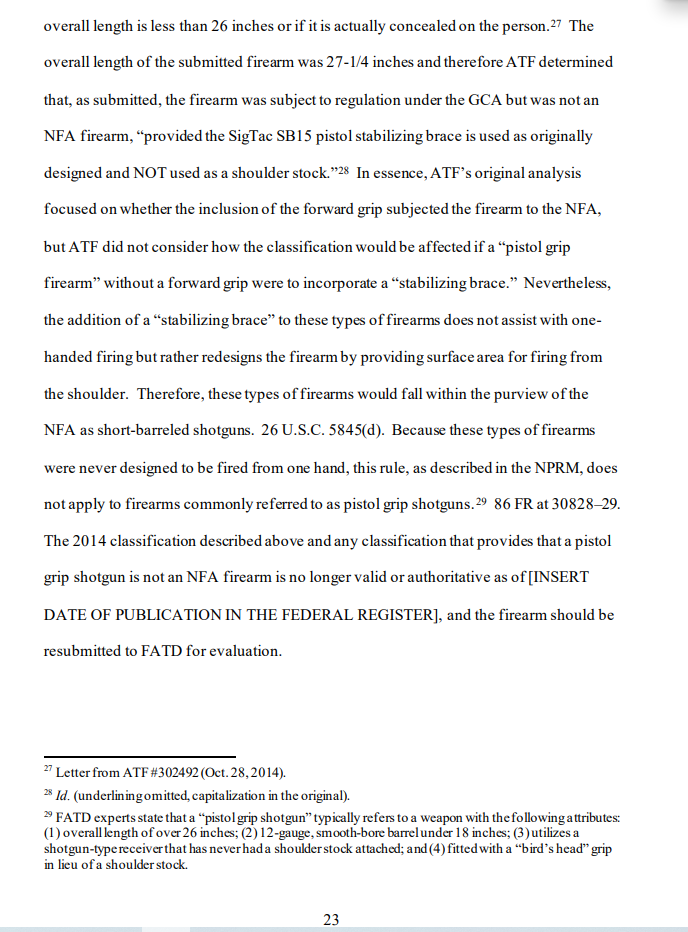ATF Makes Big Omission in Pistol Brace Regulation
BY Herschel SmithHere are the precedents he cites.
Concerning the last supreme court case, Mark is making the same remarks and observations we cited here. Common use and dangerous and unusual are mutually exclusive. Something can’t be dangerous and unusual if it’s in common use.
We should all dislike and disapprove of the Heller court including machine guns in the list of “dangerous and unusual” weapons. I’ll repeat what I’ve said before concerning my youngest son’s experience in Fallujah.
After the city was barricaded off and locked down from the flow of insurgents through the main points of ingress and egress (and that includes terminating the flow of insurgents across the Euphrates River by deploying airborne assault with helicopter, of which my son took part), every family was allowed to own fully automatic AKs for home defense against the insurgents flowing in from Ramadi.
I ask my son if he ever felt danger from those weapons. He gave me an unequivocal ‘no’ and stated that the danger came from insurgents, not men protecting their families, and he could always tell the difference.
Having said that, in this case the dangerous and unusual test may be our friend. I suspect the ATF has written the very prose that will kill the pistol brace rule, and maybe other parts of the NFA if the supreme court is honest about this.
Prior:
Common Use Excludes Dangerous and Unusual
New ATF Brace Rule Forces Destruction of Imported Pistols
Gun Owners of American Discovers Fatal Trap in Pistol Brace Rule
ATF: Byzantine, Arbitrary and Ridiculous Rules to Live By
The Hunting and Conservation Nexus of the National Firearms Act




